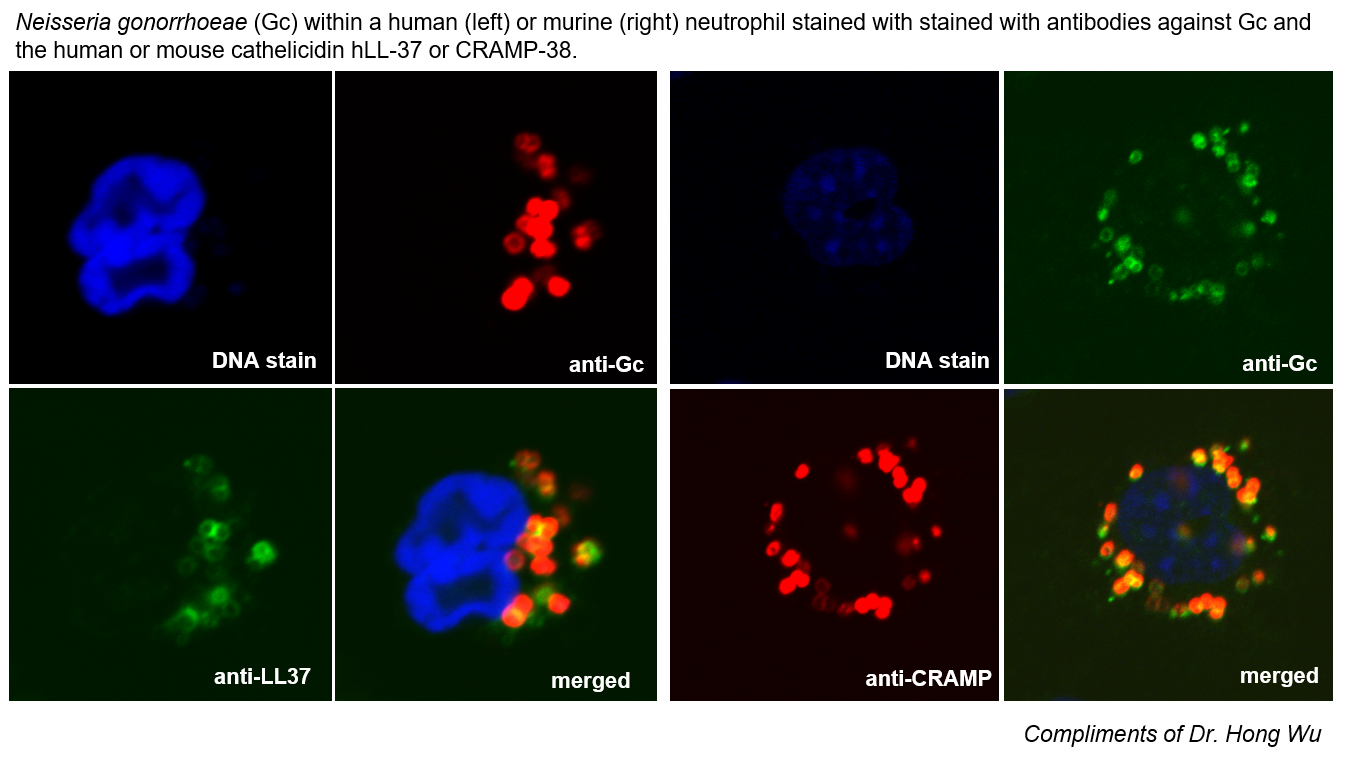USU Scientist to Lead National Gonorrhea Vaccine Cooperative Research Center
By Sarah Marshall
$10.7 million grant advances gonorrhea vaccine development
Researchers at Uniformed Services University (USU) were recently awarded part of a $10.7 million grant to develop a vaccine against gonorrhea in the next five years.
The grant was awarded in part to Dr. Ann Jerse, professor and vice chair of USU’s Department of Microbiology and Immunology, and is a cooperative agreement grant supported by the National Institute of Allergy and Infectious Diseases (NIAID), part of the National Institutes of Health. The grant funds the establishment of four Gonorrhea Vaccine Cooperative Research Centers, supporting collaborative, multidisciplinary research on the pathogens that cause syphilis, gonorrhea and chlamydia. At the end of the five-year program, each center is expected to identify at least one candidate vaccine ready for testing in human clinical trials. Each center is also comprised of at least three research projects organized around a common theme, supplying shared research services such as antibody production, microbiology lab services, and statistical support.
Jerse will be the principal investigator to lead these efforts for the Gonorrhea Vaccine Cooperative Research Center (GV CRC), which will receive $10.7 million over five years. Four research projects in the GV CRC will collectively address what immune signals constitute evidence that a candidate gonorrhea vaccine has induced immunity. Among other projects, the team will use samples from people and mice previously vaccinated with a candidate vaccine, for which there is evidence of protection against gonorrhea. This work at the GV CRC will also be done in collaboration with teams from Emory University, University of North Carolina, Duke University, University of New Mexico, Oregon State and the University of Virginia.
“We’re very excited to be awarded this grant,” Jerse said. “The award enables us to bring together a group of talented basic science and clinical researchers who have the diverse expertise needed to develop and advance promising gonorrhea vaccines towards licensure.
The pathogen that causes gonorrhea, Neisseria gonorrhoeae, is considered a ‘superbug’ because of the bacterium’s resistance to all classes of antibiotics available for treating infections,” Jerse said. Therefore, the need for a vaccine is crucial.
The Centers for Disease Control estimates 800,000 new cases of gonorrhea each year, and the rates are increasing. Gonorrhea can also be extremely harmful if left untreated, or treated improperly, causing issues such as pelvic inflammatory disease, ectopic pregnancy, and infertility. Babies who are born to mothers infected with gonorrhea are at an increased risk for blindness or pre-mature delivery. Meanwhile, up to 50 percent of infected women don’t show any symptoms, and while they are asymptomatic, the disease can still lead to adverse pregnancy outcomes and other major consequences for reproductive health.






